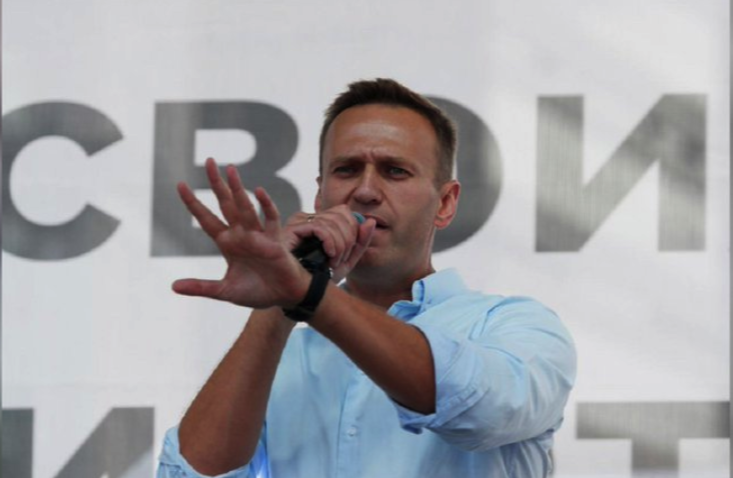Doctors treating Alexei Navalny are saying they have not found any traces of poison in his system and have refused to allow his transfer to a hospital in Germany.
"So far no poison has been identified in the blood and urine, there is no trace of its presence," Anatoly Kalinichenko told journalists in Omsk. "Poisoning as a diagnosis remains on the back burner, but we don't believe that the patient suffered from poisoning."
As previously reported, the 44-year-old anti-corruption activist and vocal critic of Russian President Vladimir Putin was on a flight from Mosco to Tomsk when he fell ill and started screaming in pain, forcing the plane to make an emergency landing in Omsk.
He was rushed to a nearby hospital, where is currently in a coma and strapped to a ventilator fighting for his life. According to Navalny's Press Secretary Kira Yarmysh, he was poisoned with toxins that were mixed in his morning tea he consumed at the airport.
Navalny's Transfer Blocked

Yarmysh said on Twitter on Friday that the head doctor at the hospital had barred Navalny's transfer stating that his condition was not stable enough. However, she wrote that the refusal to approve his transfer was "an attempt on his life being carried out right now by doctors and the deceitful authorities that have authorized it."
On Thursday, at the request of Navalny's family, Berlin-based movie producer Jaka Bizilj sent an air ambulance to Omsk airport to bring him to a Berlin hospital and is currently on standby. Bizilj's Cinema for Peace Foundation organized a similar transfer to Berlin for Russian musical group Pussy Riot member Pyotr Verzilov after his alleged poisoning.
Yarmysh claims the ban on Navalny's transfer is an attempt by authorities to stall and wait until the poison can no longer be traced.
Access to Medical Records Denied
There is growing speculation that Navalny was targeted in an assassination attempt and authorities are not trying to cover their tracks, particularly after his personal attending physician and a fellow opposition activist, Anastasia Vasilyeva, were denied access to his medical records and the intensive care unit where he was being treated. Only his wife, Yulia, was allowed "delayed" access.
The Kremlin said that it would help facilitate Navalny's transfer on request, but that did not calm suspicions that authorities wanted to delay his departure to prevent treatment by foreign medical professionals who would be more likely to publicly identify any poison remaining in his system.









